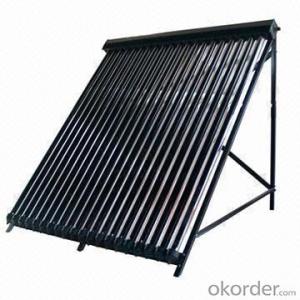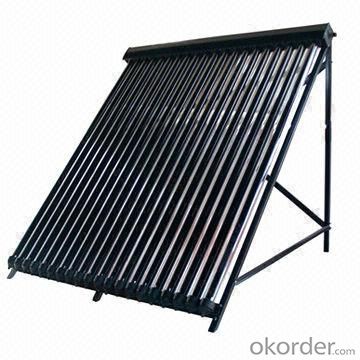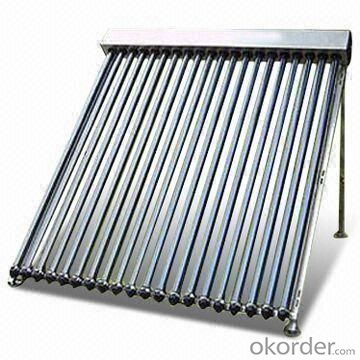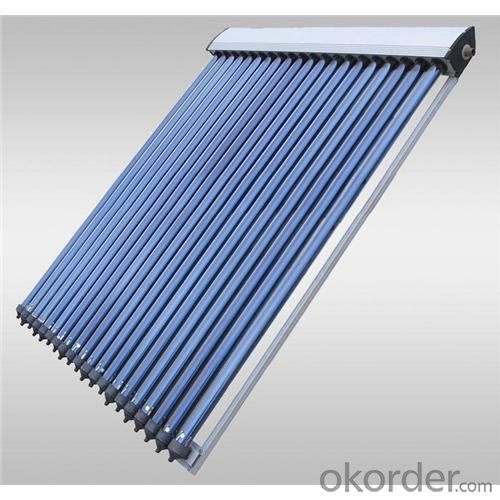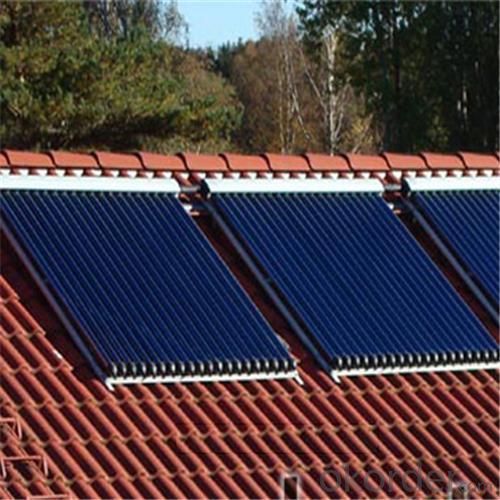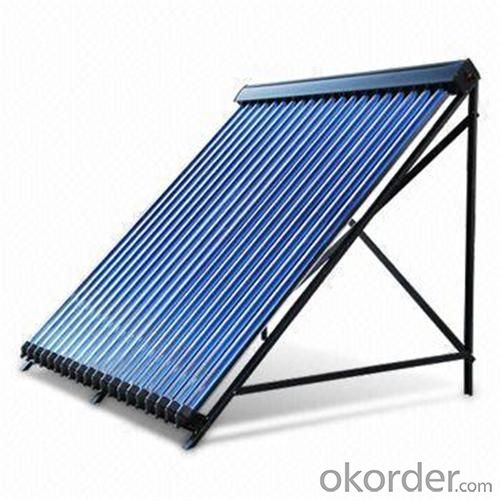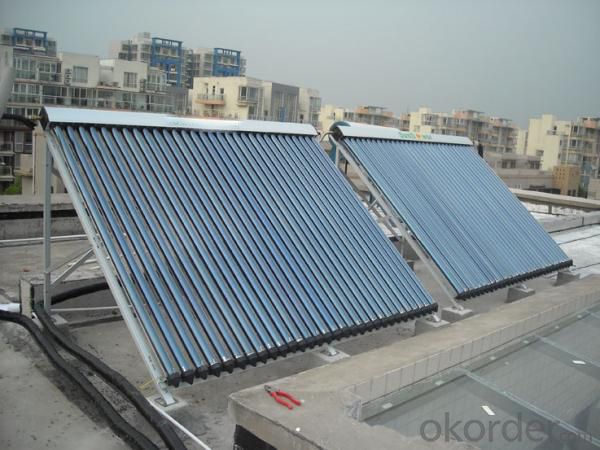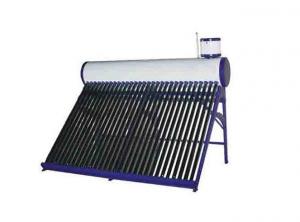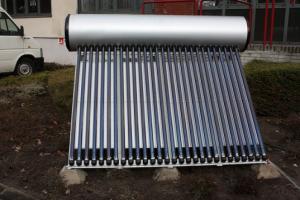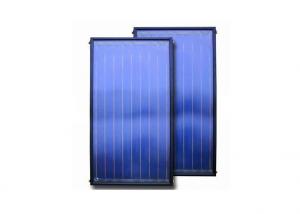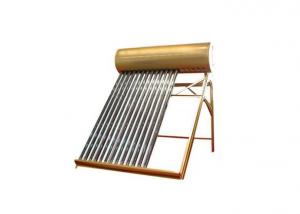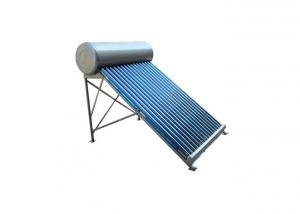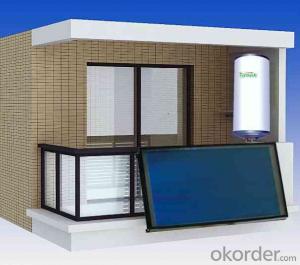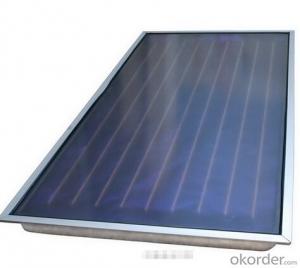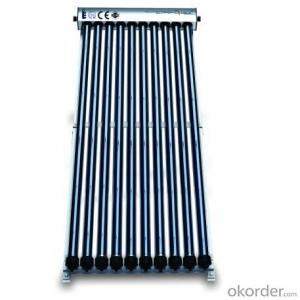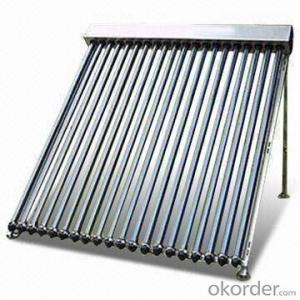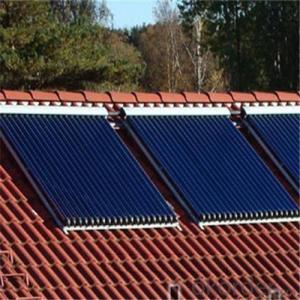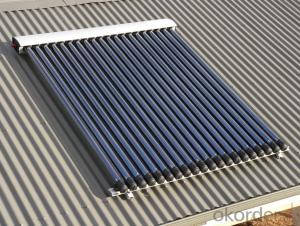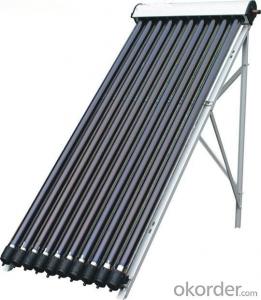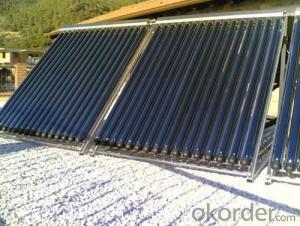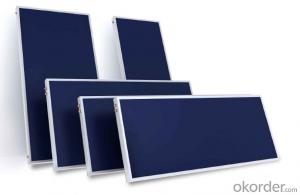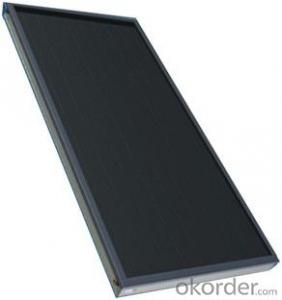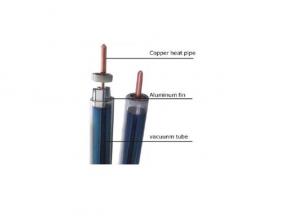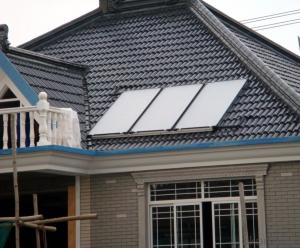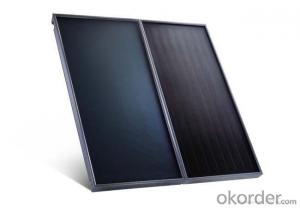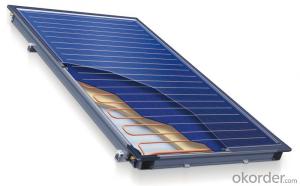Original Solar Collectors - Rooftop Economical Vacuum Tube
- Loading Port:
- China main port
- Payment Terms:
- TT OR LC
- Min Order Qty:
- 5 set
- Supply Capability:
- 10000 set/month
OKorder Service Pledge
OKorder Financial Service
You Might Also Like
Specifications
manifold (inner) | red copper |
manifold (exterior) | aluminum alloy |
glass tube dimensions | 58mm * 1800mm |
daily efficiency | ≥55% |
heat preservation | 72 hours |
hail resistance | 25mm |
max pressure | 7 bar |
coating of vacuum tube | ALN/AIN-SS/CU |
heat pipe | anti-freezing > -35 degree |
certificate | Solar Keymark, EN12975,SRCC |
Serious Product
Models | L*W*H mm | Vacuum tube | Power output | Efficiency | Header mm | Frame | container loading 20FT/40HQ sets | Gross Weight kg |
SHC-8 | 1917*910*133 | 58*1800*8pcs | 939W | 0.668 | Φ35/1.0 | AL alloy | 185/445 | 27 |
SHC-10 | 1917*1130*133 | 58*1800*10pcs | 1189W | 159/385 | 33 | |||
SHC-12 | 1917*1350*133 | 58*1800*12pcs | 1440W | 149/358 | 40 | |||
SHC-15 | 1917*1680*133 | 58*1800*15pcs | 1815W | 120/290 | 49 | |||
SHC-18 | 1917*2010*133 | 58*1800*18pcs | 2191W | 100/242 | 59 | |||
SHC-20 | 1917*2230*133 | 58*1800*20pcs | 2442W | 87/210 | 66 | |||
SHC-22 | 1917*2450*133 | 58*1800*22pcs | 2692W | 83/202 | 72 | |||
SHC-24 | 1917*2670*133 | 58*1800*24pcs | 2943W | 77/188 | 79 |
Packaging & Delivery
Packaging Details: | Exporting Carton with big foaming protection |
Delivery Detail: | In 10-15 days |
Loading Quantity
Model | Tube | Tube Q.T.Y | Loading Q.T.Y/40HQ |
GSC15 | 58*1800mm | 15pcs | 315sets |
GSC18 | 58*1800mm | 18pcs | 265sets |
GSC20 | 58*1800mm | 20pcs | 248sets |
GSC22 | 58*1800mm | 22pcs | 225sets |
GSC25 | 58*1800mm | 25pcs | 200sets |
GSC30 | 58*1800mm | 30pcs | 168sets |
Principle of solar collector:
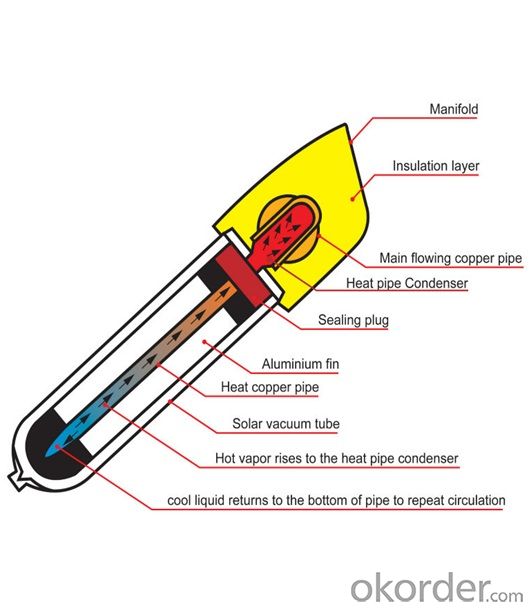
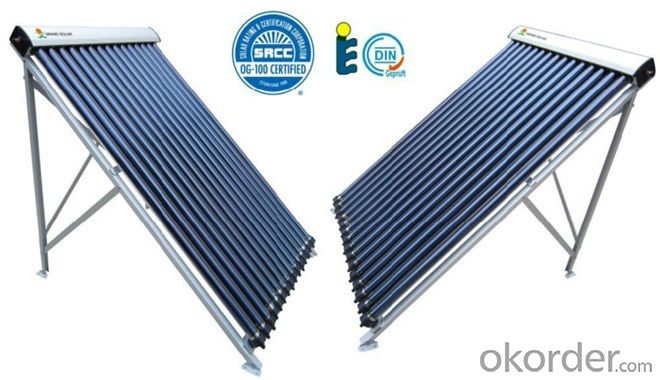
Solar collector details
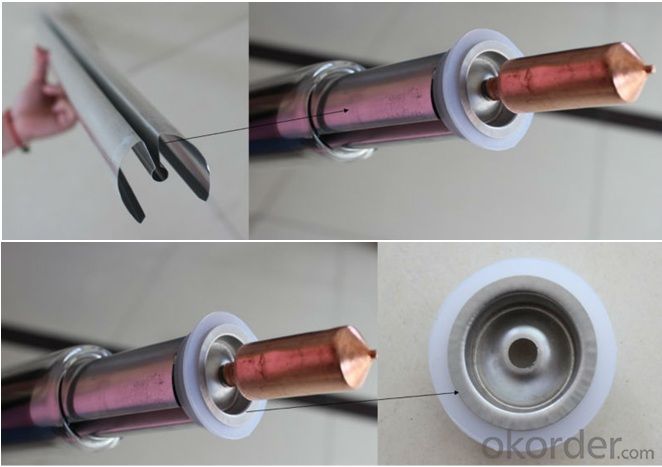
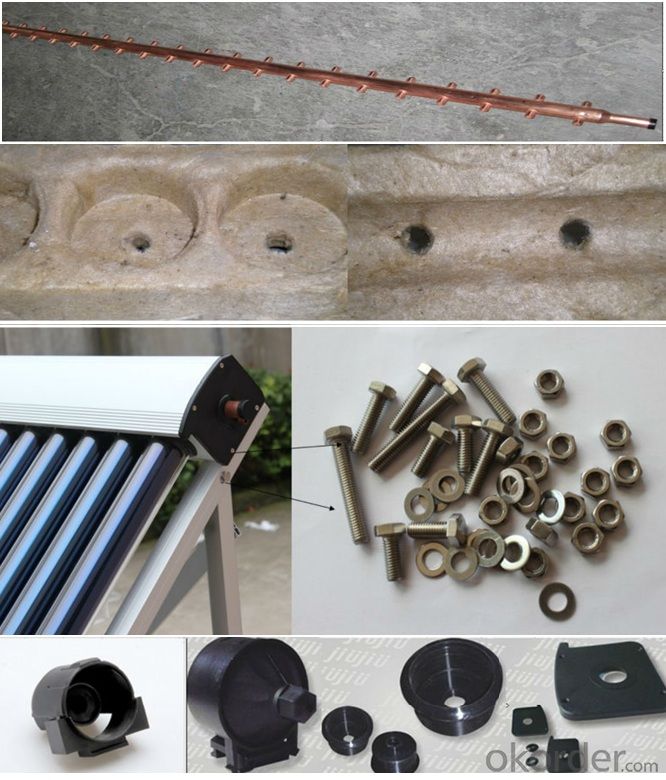
- Q: Can solar collectors be used for heating orchards?
- Yes, solar collectors can be used for heating orchards. Solar thermal systems can capture solar energy and convert it into heat, which can then be used for various purposes, including heating orchards. By utilizing solar collectors, orchard owners can reduce their reliance on fossil fuels and lower heating costs while maintaining optimal growing conditions for their crops.
- Q: Can solar collectors be used for charging batteries?
- Solar collectors have the capability to charge batteries. These collectors, also referred to as solar panels or photovoltaic (PV) panels, transform sunlight into electricity using the photovoltaic effect. The resulting electricity can be utilized to charge batteries, either directly or indirectly. Direct battery charging with solar collectors entails connecting the panels directly to the battery via a charge controller. The charge controller regulates the amount of electricity entering the battery, ensuring safe and efficient charging. This technique is commonly employed in small-scale applications such as solar-powered battery banks, solar-powered lighting systems, or solar-powered portable devices. Indirect battery charging with solar collectors involves converting solar electricity into alternating current (AC) using an inverter. The AC electricity can then power devices or appliances, including battery chargers. In this case, the battery charger is connected to the AC output of the inverter, which charges the batteries using the electricity generated by the solar panels. This approach is frequently utilized in larger-scale applications like residential or commercial solar power systems. In summary, solar collectors offer an exceptional renewable energy source for battery charging. They offer a clean and sustainable method of generating electricity, thereby reducing dependence on traditional energy sources. Whether in small-scale or large-scale applications, solar collectors can effectively charge batteries and contribute to a more eco-friendly and sustainable future.
- Q: Can solar collectors be used in conservation areas?
- Yes, solar collectors can be used in conservation areas. They are a sustainable and environmentally friendly energy source that can help reduce the carbon footprint in these areas. However, it is important to consider the specific regulations and guidelines of each conservation area to ensure that the installation and use of solar collectors align with the preservation goals of the area.
- Q: Are solar collectors safe?
- Yes, solar collectors are safe. They do not emit harmful emissions or produce hazardous waste during operation. Additionally, they have undergone rigorous testing and are designed to meet safety standards to ensure the well-being of both users and the environment.
- Q: Can solar collectors be used in agricultural applications?
- Yes, solar collectors can be used in agricultural applications. They can be utilized to power irrigation systems, greenhouse heating, and drying crops, among other agricultural processes. Solar energy provides a sustainable and cost-effective solution for farmers, helping to reduce dependence on traditional energy sources and lower operational costs.
- Q: Can solar collectors be used for heating swimming pools in colder climates?
- Yes, solar collectors can be used for heating swimming pools in colder climates. Solar collectors are designed to harness sunlight and convert it into heat energy, which can effectively raise the temperature of a swimming pool. While colder climates may have less sunlight available compared to warmer regions, solar collectors can still be utilized to heat swimming pools by capturing and utilizing the available solar energy. Additionally, using solar collectors for pool heating can be cost-effective and environmentally friendly compared to traditional heating methods.
- Q: What is the impact of altitude on solar collector performance?
- The impact of altitude on solar collector performance is primarily related to the reduction in air density at higher altitudes. This decrease in air density leads to a lower heat transfer coefficient, resulting in reduced heat transfer efficiency of the solar collectors. Additionally, the decrease in atmospheric pressure at higher altitudes can affect the boiling point of the heat transfer fluid, potentially leading to operational challenges. However, the impact of altitude on solar collector performance can vary depending on factors such as the type of collector, location, and design considerations.
- Q: How do solar collectors impact job creation?
- Solar collectors have a significant impact on job creation in various sectors of the economy. Firstly, the installation and maintenance of solar collectors require skilled workers, creating job opportunities for engineers, technicians, and construction workers. These professionals are responsible for designing, installing, and repairing solar panels, which directly contributes to job creation in the renewable energy industry. Furthermore, the production and manufacturing of solar collectors also generate employment opportunities. Solar panels are composed of various components that are typically manufactured in specialized factories. This results in job creation for workers involved in the production of solar cells, frames, inverters, and other components required for the solar collectors. Additionally, the increased demand for solar collectors leads to job creation in the sales and marketing sectors. As more individuals and businesses choose to install solar panels, there is a need for sales representatives and marketers to educate and promote the benefits of solar energy. These professionals play a vital role in expanding the adoption of solar collectors, thereby creating more job opportunities. Moreover, the growth of solar collectors creates indirect job creation in related industries. For instance, the installation of solar collectors often involves electrical work, which requires electricians. This leads to additional employment opportunities for electricians who can provide their expertise in connecting the solar panels to the electrical grid. Furthermore, as the solar industry continues to expand, research and development activities are crucial. This results in job creation for scientists, engineers, and researchers who are focused on enhancing the efficiency and effectiveness of solar collectors. Overall, solar collectors have a positive impact on job creation by creating employment opportunities in the renewable energy industry, manufacturing sector, sales and marketing, as well as indirect job creation in related fields. As the world shifts towards sustainable energy sources, the demand for solar collectors will continue to grow, thereby contributing to further job creation.
- Q: Can solar collectors be used for heating outdoor spaces such as patios or terraces?
- Yes, solar collectors can be used for heating outdoor spaces such as patios or terraces. Solar collectors, such as solar thermal panels or solar air heaters, can absorb sunlight and convert it into heat energy, which can then be used for space heating purposes. These collectors can be installed on rooftops or in other suitable locations to capture solar energy and provide warmth to outdoor areas, making them comfortable and enjoyable even during colder seasons.
- Q: Can solar collectors be used in areas with limited access to training?
- Yes, solar collectors can be used in areas with limited access to training. Solar collectors are relatively simple and straightforward to install and operate. Additionally, there are various resources available online, such as instructional videos and manuals, that can provide guidance on how to properly install and maintain solar collectors. Moreover, local organizations and NGOs often offer training programs and workshops on renewable energy technologies, including solar collectors, to support the adoption of such systems in areas with limited access to training.
Send your message to us
Original Solar Collectors - Rooftop Economical Vacuum Tube
- Loading Port:
- China main port
- Payment Terms:
- TT OR LC
- Min Order Qty:
- 5 set
- Supply Capability:
- 10000 set/month
OKorder Service Pledge
OKorder Financial Service
Similar products
Hot products
Hot Searches
Related keywords
